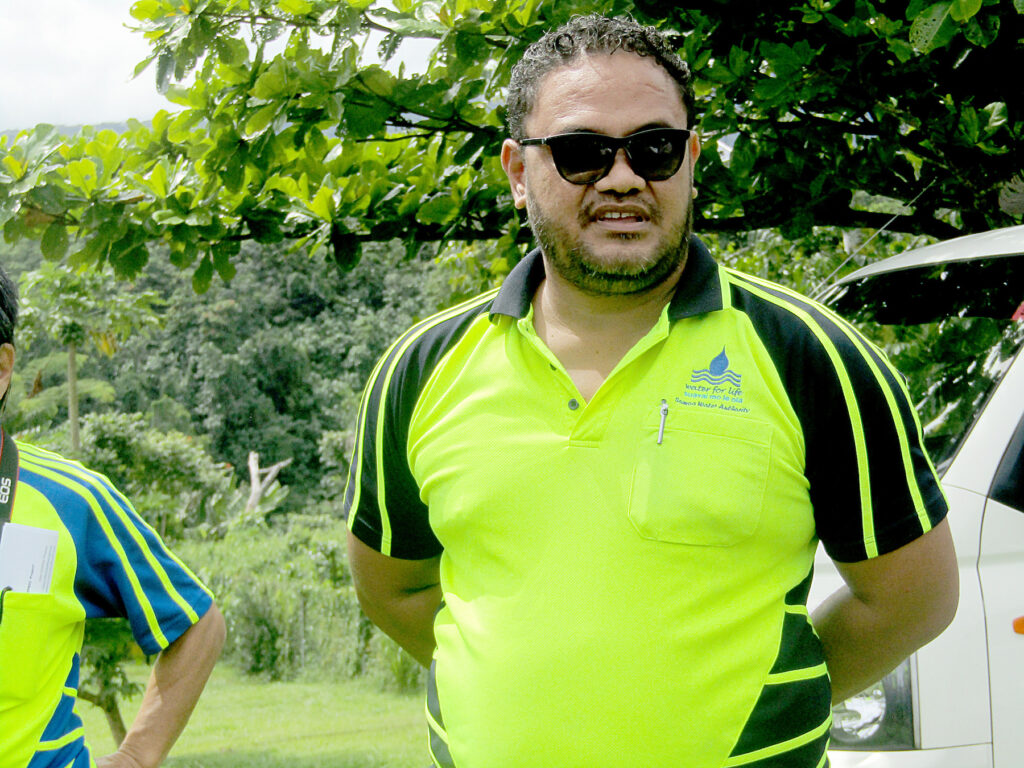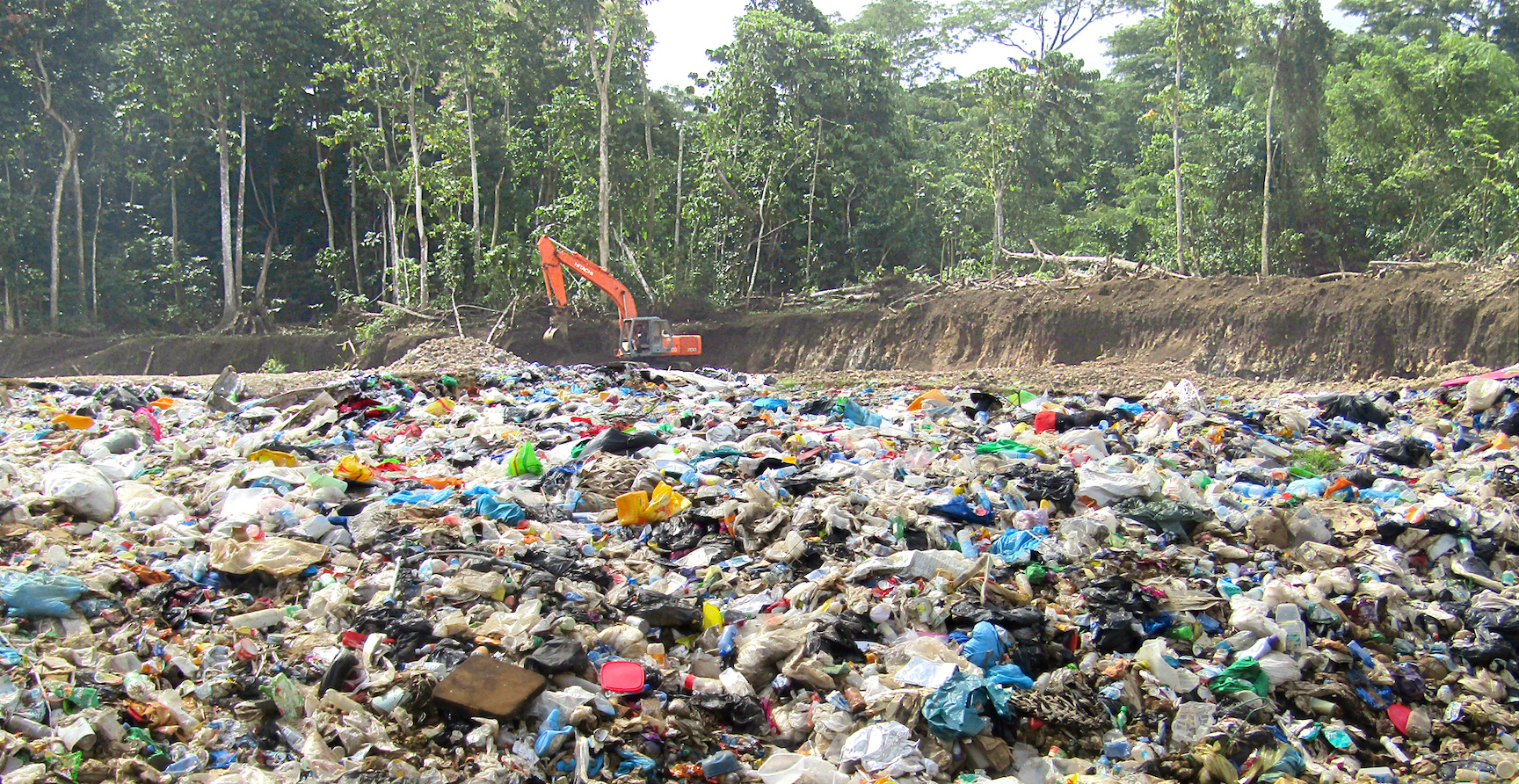Tafaigata Landfill
I Lesatele
Samoa and Japan International Cooperation Agency J ICA resume cooperation when Samoa opened up its borders in August last year which were closed due to the COVID -19 pandemic.
JICA Resident Representative in Samoa Ms Yumiko Asakuma said that co-operation between Samoa and Japan remained the same when asked of any change in cooperation between the two countries following COVID-19.
“Co-operation is the same as before,” Ms Asakuma told Newsline Samoa.
“We are resuming our co-operation. ”
A major project JICA and Samoa work jointly on is the Solid Waste Management Project.
JICA’s input in this project are technical experts, technical training and provisions of equipment such as equipment for waste collection and plastic monitoring.
Management of the landfill at Tafaigata is a major part of the management of waste in the country. Samoa was the first case for a Pacific country to have landfill management.

The project started in 2003 and the Japanese methodology was used to improve the landfill at Tafaigata.
Samoa was the first country to put in place a landfill management.
According to Mr Satoru Mimura a Japanese technical expert who has been with the project from its commencement stated that no one was interested in this type of project at the time.
“When we started the waste management 20 years ago only JICA was interested. Now many people are interested in reducing plastic waste. Many donors are coming. This is good as Japan cannot cover all,” Mimura said.
With the current phase of the project coming to an end and the next one to start in June this year Mimura said that Samoa has made huge progress in managing its solid waste.
The landfill at Tafaigata Mimura said was a messy place but it is now under control and well managed.
“ It is a big progress,” he said.
He added that Samoa’s officials in the waste management have improved their skills.
Mimura added that Samoa is now the top planner of waste management in the Pacific.
“ Samoa is very much advanced than other countries in the Pacific. Most of the Pacific Islands they have rubbish collection once a week or once a month or nothing. In Samoa waste management is a daily activity.”
Plans have also been put in place to export recycled plastic waste overseas. A sample was sent to Japan and a quotation has been received Mimura said.
The next phase of the waste management project which starts in June this year is exporting opportunities for plastic waste and other types of waste material such as used air conditions which can be broken down into fine material to make it easy to export.
Mimura said there is a potential market for this material in the industrial sector overseas.
The project is for 5 years with a funding of US$10 million.
Mimura revealed that one of the biggest problem for the government of Samoa is the financial sustainability of the solid waste management programme.
Some of the benefits for Samoa from this project include the development of a national solid waste management strategy, the establishment and improvement of a rubbish monitoring system.
So too is the preparation of financial options for sustainable operations, collection of 50,000 litres of waste to be exported and the implementation of a plastic waste recycling pilot for expanding export possibilities.
The Fuluasou Water Treatment Plant is also a Samoa and JICA joint project..
JICA gives assistance in this project by offering training for Samoa Water Authority technical staff, equipment, short and long term experts.
The project is to strengthen the capacity for non-revenue water control as well as the internal training system of Samoa Water Authority.
This will help Samoa Water Authority to improve its water supply services through the managing and reducing loss of non-revenue water.
The focus was on fixing leakages in the pipeline system to control the loss of water.

Japanese Volunteer Ms Nao Hara at Fagalii Primary School and Ms Seuamuli Faasega Sakaria principal of Fagalii Primary.
The pipes are old and this is the main cause of leakages explained Julius Matthes an engineer with Samoa Water Authority.
“The pipes are more than 10 years old and the main standard is that after 10 years the pipes should be changed,” Matthes told Newsline.
Matthes added that there is no funding to replace the whole system but what they are doing is to detect where the leakages are and fix those.
It is estimated 7,000 connected households from Fuluasou to Leulumoega would benefit from this project.
Another sector which has also benefitted from JICA –Samoa cooperation is Education.

Fagalii Primary School is one of the schools which has been hosting volunteer teachers from Japan dating back to 2011 to teach Science, Mathematics and Sports.
Principal of the school Seuamuli Fa’asega Sakaria praised the work the volunteers and said their students and the teachers had greatly benefitted from their volunteers.
“ The arrival of these wonderful experts has provided us with the knowledge and skills not only to equip teachers in teaching Science, Visual Arts, Mathematics and Sport but to assist the students to explore beyond expectations as they embrace a lot of changes in Samoan current curriculum. The importance of this teamwork moving forward not only enables teachers to facilitate student centred approach but create more effective strategies to promote quality education in our school,” Seuamuli said.
Samoa – JICA cooperation dates back to 1968 and this year marks 55 years since that cooperation began.

First female JICA representative in Samoa Ms Yumiko Asakuma in her statement to media representatives explained why JICA –Samoa cooperation is important.
Samoa and Japan are part of the Pacific she pointed out.“ We are far from each other but we share the Pacific. Both Japan and Samoa are island countries.”
She also added that some of JICA’s cooperation projects create new knowledge in Samoa and disseminate the knowledge and experiences to other Pacific countries.
